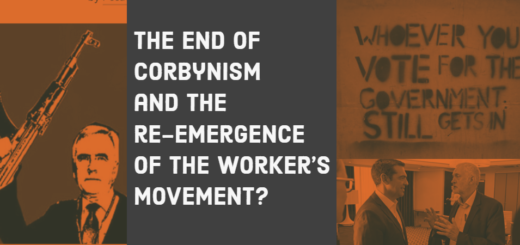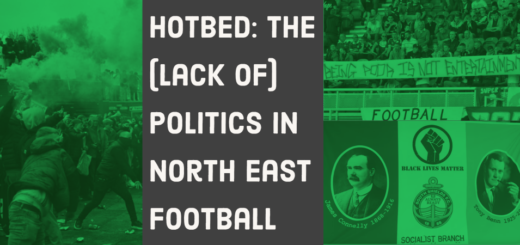The Revolutionary Potential of Minority Languages
I’m old enough to remember when the BNP advocated for minority languages, in a roundabout and obviously racist way. One of their aims in their 2010 manifesto was to ensure the only languages permitted in local and national governmental documents and papers were English, Welsh, Cornish, Manx and [Scottish] Gaelic. How the BNP planned to factor in the Irish language, taking into account the ongoing occupation of the Six Counties, remains a mystery to me. But all this was jarring for the young left-wing language nerd to read about, especially since in England, there is so little discourse about minority languages, including those spoken in the countries neighbouring our own. There was a danger that the far-right would somehow fill this void of ignorance with their bigotry, as they so often do, and while the BNP thankfully failed in this case, some minority language communities themselves contain a minority- that is very right-wing.
The void of ignorance is real in England. It’s not too uncommon to meet others who are well into adulthood and entirely unaware that the Celtic languages exist. Anecdotally, I knew of people who joined my Irish classes here in the expectation that they would be taught how to speak English with an Irish accent as opposed to their native Geordie. On learning that it’s a real and very different language from English, they dropped out.
“But they all speak English anyway over there” is a very familiar refrain that many, if not all, native speakers of English who are learning another language have heard, no matter what language they’re learning. There is something about some English- speaking monoglots that gives them an urgent need to immediately devalue and deride learners of other languages in a way that is seldom seen with other academic pursuits.
Applying that to minority languages, however, makes the situation even more dire. Speakers of Celtic languages, for example, are almost always fluent in English too, meaning that there is always the looming threat of reverting to English for the sake of convenience. It also makes it far rarer for people to learn minority languages out of necessity, and as such, is often seen as a purely academic pursuit- learning for the sake of enjoyment. Many working- class communities did not have that luxury, so learning a minority language is sometimes regarded, unfairly in my view, as a little elitist. Juxtaposed with that is the economic and social reality faced by many native speakers of minority languages. There are reasons a language becomes minoritised, these reasons often boil down to ‘capitalism, the problem is capitalism’, and these reasons affect many facets of the lives of these native speakers.
Imagine the language you are learning is practically unknown to many of your compatriots, even though it’s still spoken, written and displayed extensively on bilingual signs in the country right next door. And then imagine that historically, your compatriots colonised that country, as they did with many others, and they still have a bit of it, and the decline of the language can be strongly attributed to that colonisation.
One assumption I come up against time and time again when I tell people that I’m learning Irish, is that I have Irish heritage and that this must be why I’m learning. I do have Irish heritage, like around 20% of the population in England, but the approval of my ancestors was neither motivation or help to me when it came to my multiple and still-failing attempts to understand the fifth declension of the genitive case. I am also engaged in many, many activities in my political and personal life on a regular basis that I am certain most of my ancestors would strongly disapprove of, and as such I have no desire to placate them; it is a hopeless endeavour at this point. The references to my heritage are on some level an attempt to ‘claim’ me; the Irish-speaker thing cancelling out the English thing, so to speak. However, I’m white, and Irish speakers of colour, who hold Irish citizenship, were born in and have only ever lived in Ireland, often experience outright bigotry and exclusion, often from people who can barely string a sentence together in Irish themselves. I’ve witnessed them being told everything from well-meaning but highly misguided statements such as “If only actual Irish people could speak the language as well as you!” to straight-up abuse, calling into question their right to speak the language at all. If including me involves excluding those people, then I want no part in that inclusion.
My core belief in learning Irish is that either the language is for everybody, or it’s for nobody. Nobody should have to take an Ancestry DNA test to feel justified in their decision to learn Irish. Being interested is enough to make you part of this vibrant and varied community.
The future of the language is the key focus here, and that future is determined by the speakers of that language here and now. When you decide to learn a minority language, you become part of the struggle for that language’s future. Learning a minority language can be an act of resistance against the status quo, an acknowledgement that languages do not simply die out, but like our environment, are being killed off, by powerful people with names and addresses. We place a lot of emphasis, wrongly in my view, on perfection when learning languages. Growing up in a monoglot environment can make you afraid to make mistakes- the mistakes anyone has to embrace when learning another language. It can be confronting, as an adult, to suddenly realise that when under pressure to communicate only in the language you are learning, you now have the same vocabulary range as you did as a 5 year old. Unfortunately, as an adult, it’s rarely socially acceptable to express that frustration in the form of a tearful tantrum, and as a result many people revert to the politer but no more helpful option of shyness.
The road to fluency is a long one, but it’s not a race, and you may as well enjoy the journey. It is incredibly rewarding to be part of something greater than yourself, and it’s an experience that many of us, as leftists, can already relate to. And practically speaking, it can be highly useful to communicate in a minority language on a demo as it dramatically lowers the risk that you’ll be understood by cops!


